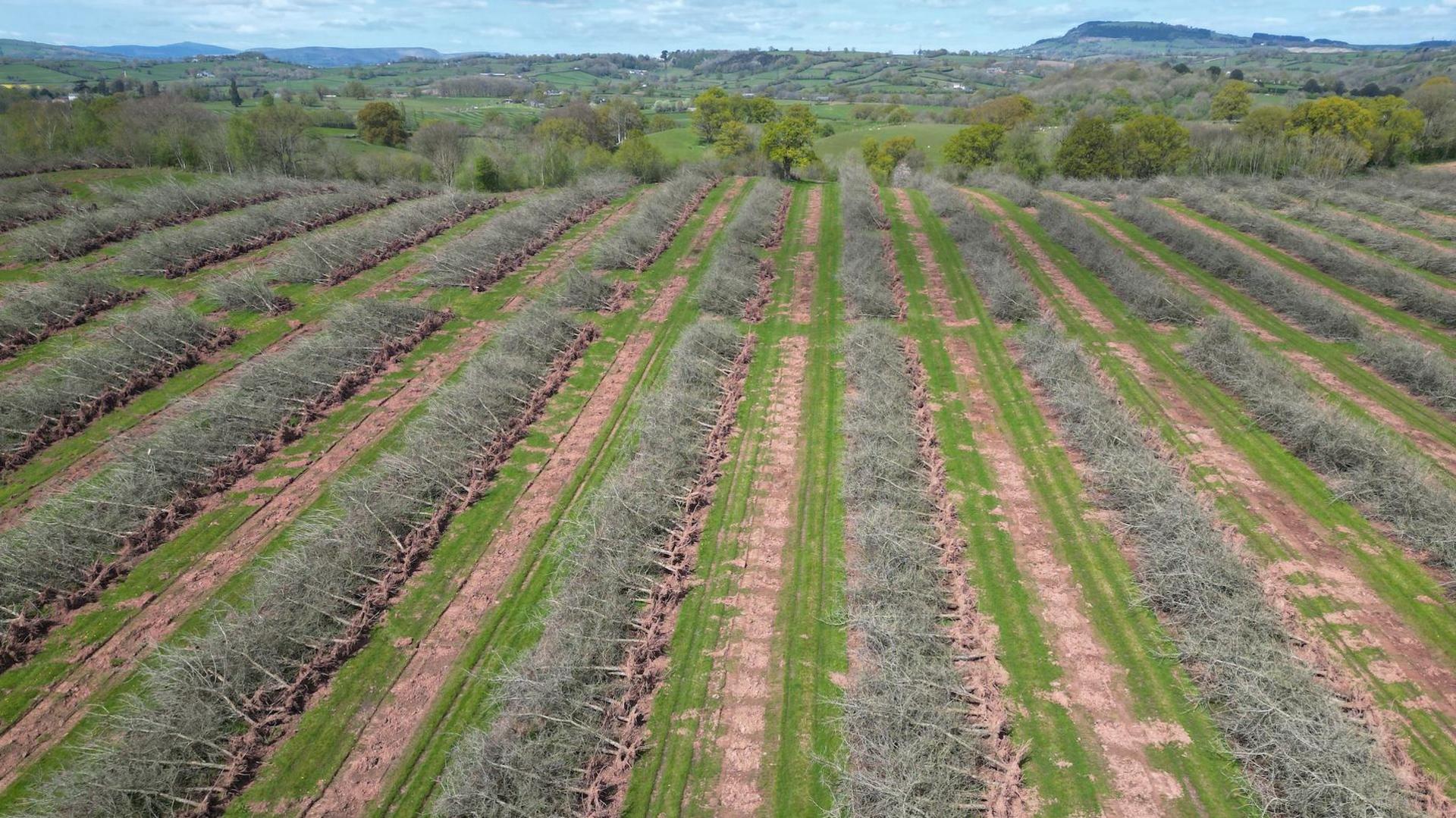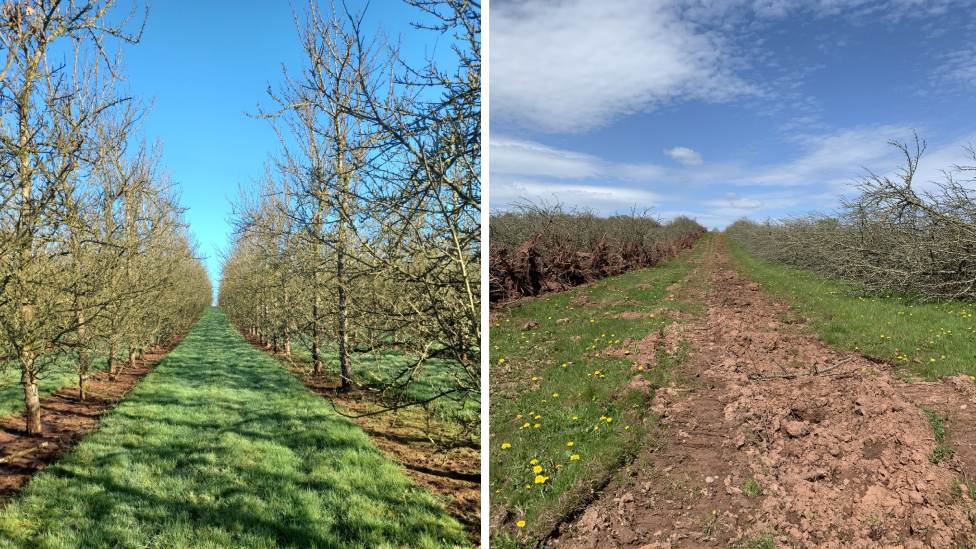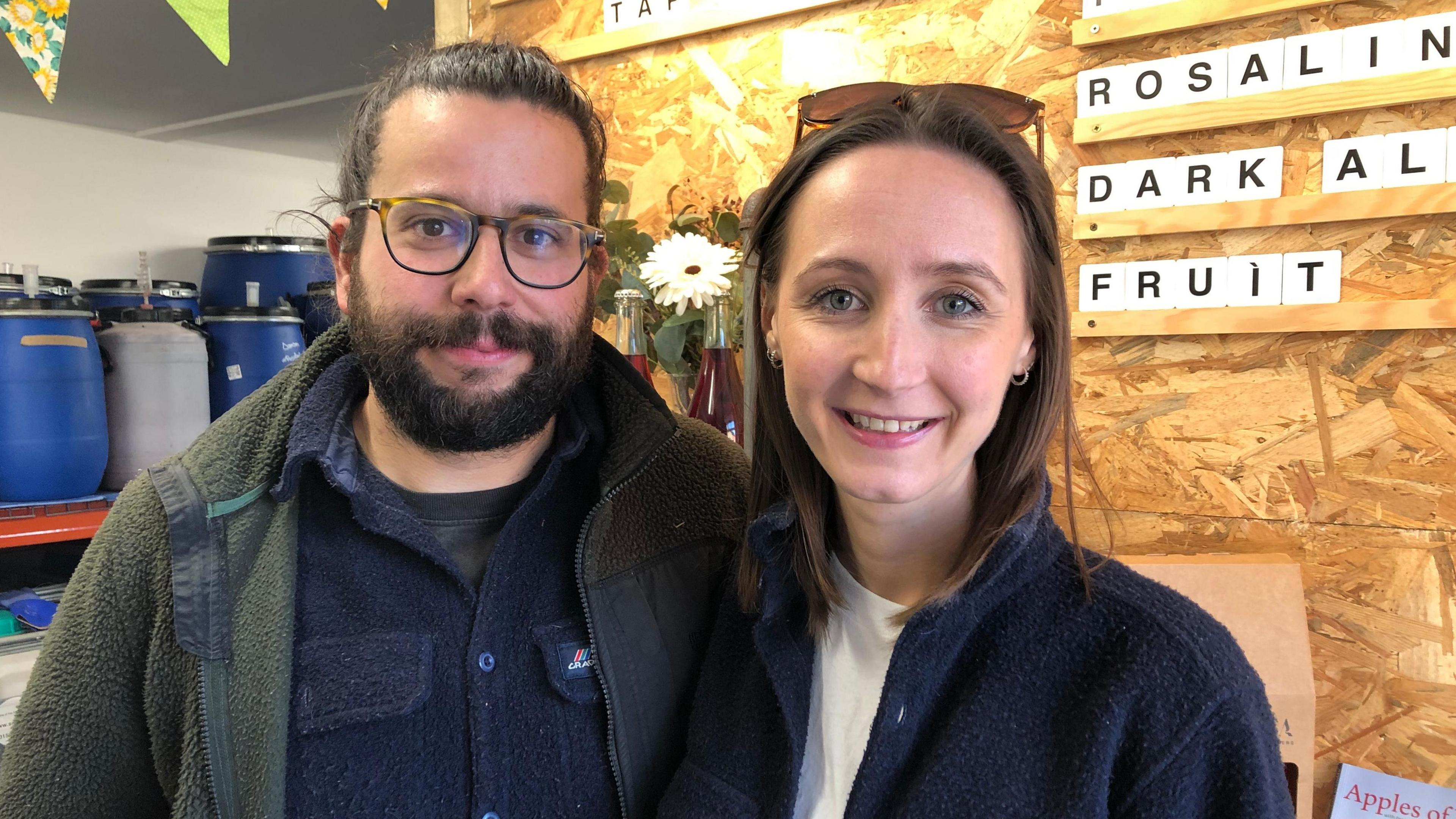Brewing giant Heineken fells orchard to sell land

Apple trees at Penrhos Orchard covered nearly 300 acres of land
- Published
The UK's largest cider maker has chopped down a huge orchard, sparking fears for wildlife as it is a natural bird habitat.
Heineken, which owns Bulmers cider, has levelled the orchard - the size of 140 football pitches - on the Offa's Dyke path in Monmouthshire.
It wants to sell the land and blamed a surplus of apples and a slow down in demand for cider for the uprooting of thousands of trees at Penrhos Orchard, which were planted in 1997.
Environmentalists are concerned about the effect on migratory bird populations, but Heineken insisted it had acted in accordance with the Wildlife Act, external.
Clarkson warns some of his cider might explode
- Published22 July 2023
Community orchards saving Britain's 'lost' apples
- Published11 October 2022
People whose homes overlook the orchard, which spans several large fields, said they were "sad" and "disappointed" the trees had gone, but one said it improved the view of the surrounding hills.
Ecologist Chris Formaggia has spent many years walking with his children on footpaths through the orchard.
He has monitored the various birds that have been in the trees and is concerned about the future.
Cider: Heineken chops down thousands of apple trees
He said: "At this time now all the trees would be in their full blossom. It would be a really impressive area so the changes are absolutely total, really."
The biggest impact, he said, was on wintering thrush species such as fieldfare and redwing that eat autumn berries then move on to "wind-blown apple crops".
"So this orchard was absolutely teeming with these winter thrushes," he said.
"I think inevitably there will be a big loss here, particularly with those wintering populations.
"That foraging and that safety of the trees has gone and it’s not going to be replaced."

Despite chopping down this large orchard, Heineken says it will still source all of its apples from farms around Herefordshire
Heineken said it was "incredibly important that we act responsibly and sustainably at all times" and the move was prompted by the slowing cider market and improved growing practices.
The National Association of Cider Makers said 2,000 acres of British cider apple orchards had been lost in the past few years which, due to high tannin levels, "have no other use than for making cider".
It said the amount of cider being drunk in the UK had dropped by a third over the past 10 years "leading to this devastating loss of orchards".

Adrian Morales and partner Alys Williams have bought an orchard alongside their small tap room business
Despite the challenges facing the UK cider industry, community orchards and small cider brewing businesses reflect a slightly different picture.
Brewer Adrian Morales and partner Alys Williams opened their cider tap room in Talgarth, Powys, about a year ago.
Since then they have also acquired an orchard next door which allows campers.
Adrian said: "I think we have to see orchards not only as a highly intensive source of apples but also as a source of more activity.
"I think it would be good to have more support from government bodies to encourage people to do that and diversify the orchards."
Alys added: "It’s all about an education of the product itself and stripping it of its stereotype as a cheaper alcohol that people used to go for.
"We love to bring our experience from north Spain and use different types of apples - not just cider apples but cookers and eaters as well - which creates a more acid-driven cider which can go really well with a cheese board and things like that."
The issues of trees has proved controversial recently, with the Welsh government consulting on plans to ensure farmers must grow them on 10% of their land to qualify for an important subsidy scheme.
While ministers say this would help to tackle carbon emissions, many farmers suggested the scheme was unworkable, with 3,000 protesting at the Senedd in February.
However, the scheme is voluntary so Heineken is entitled to cut down the trees on its land and, as it intends to sell it, it would be up to the next owners to decide if they wanted to plant trees if they used it as farm land.